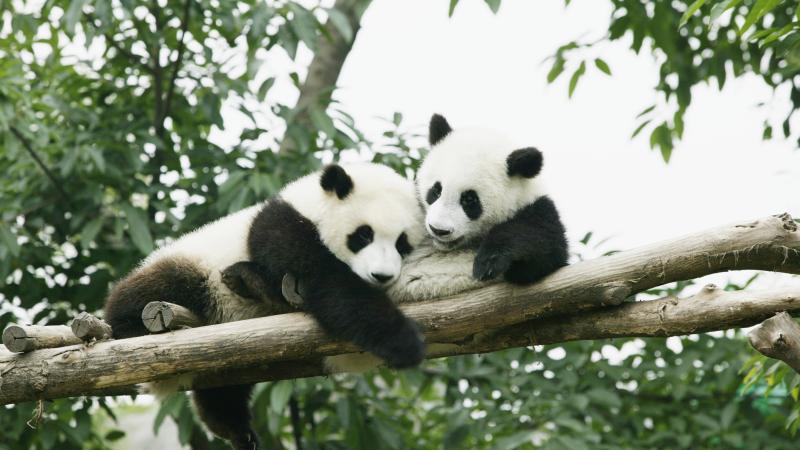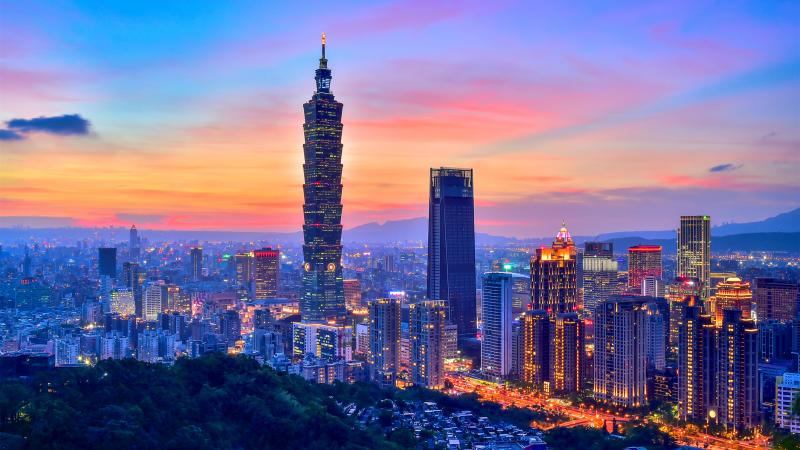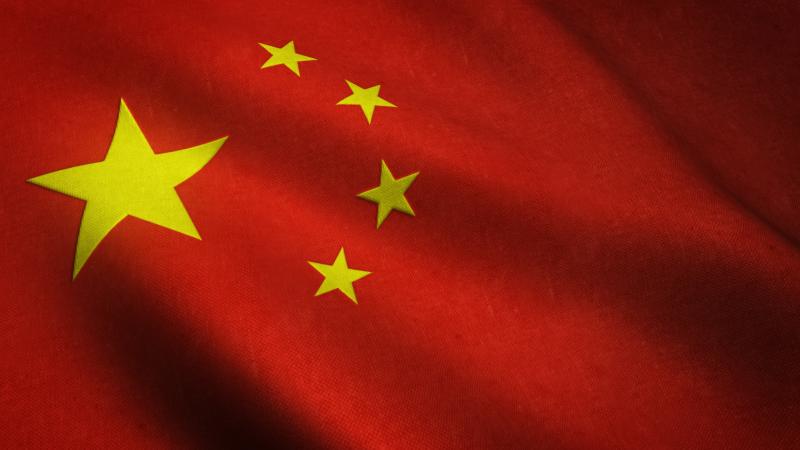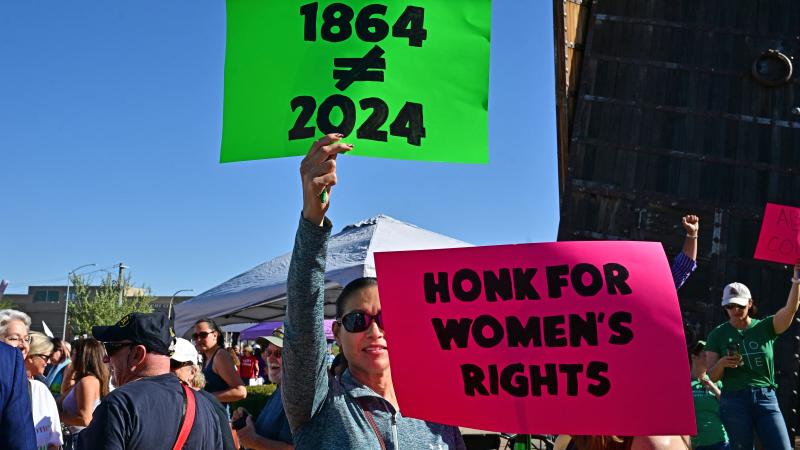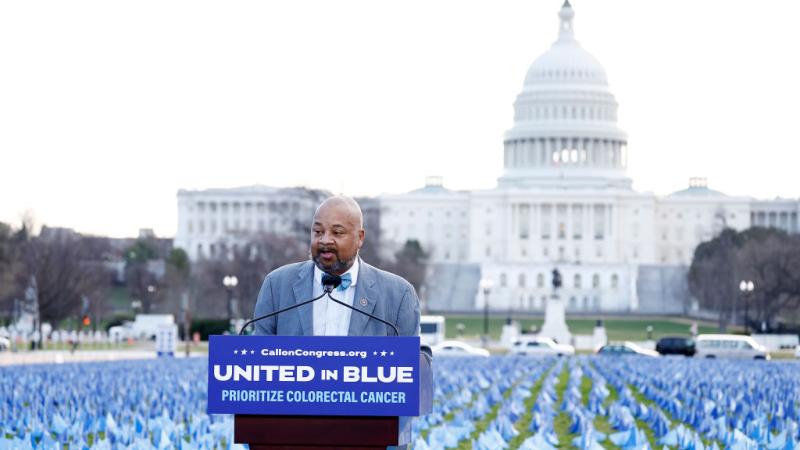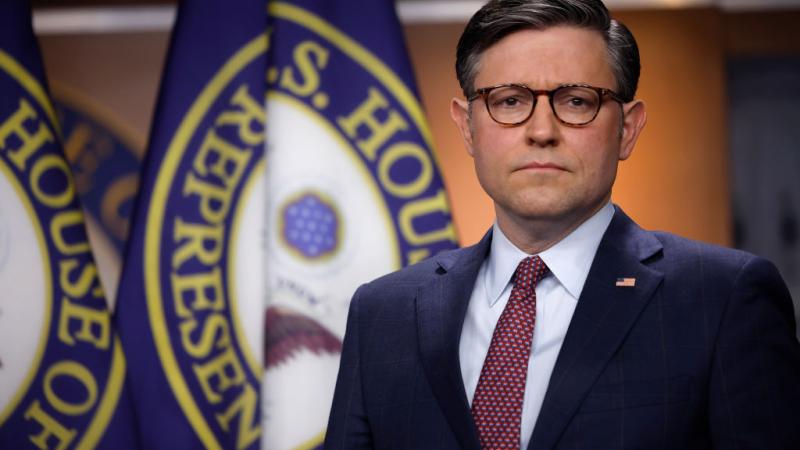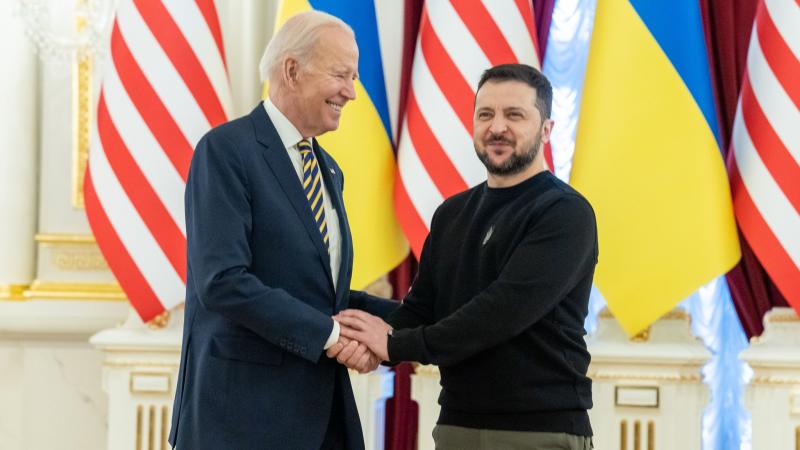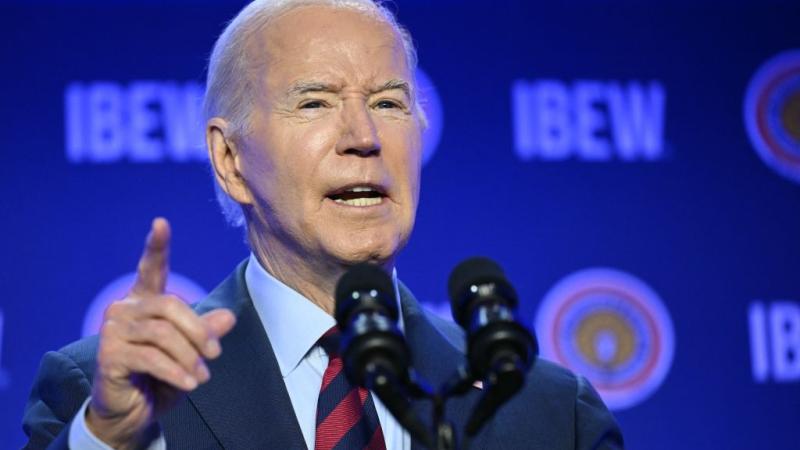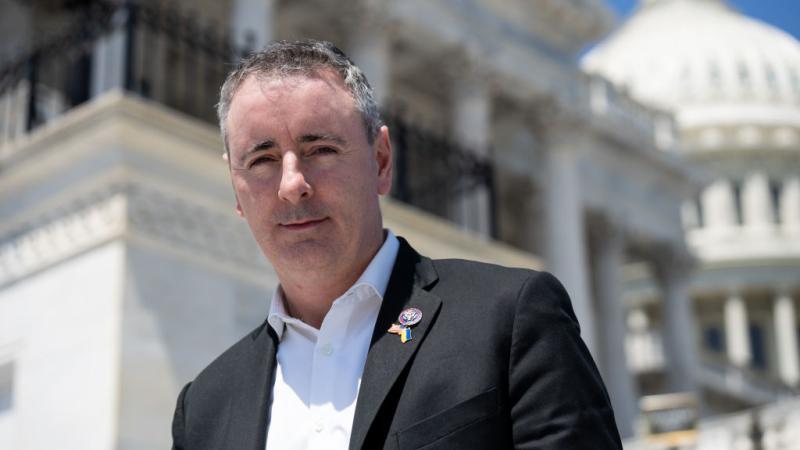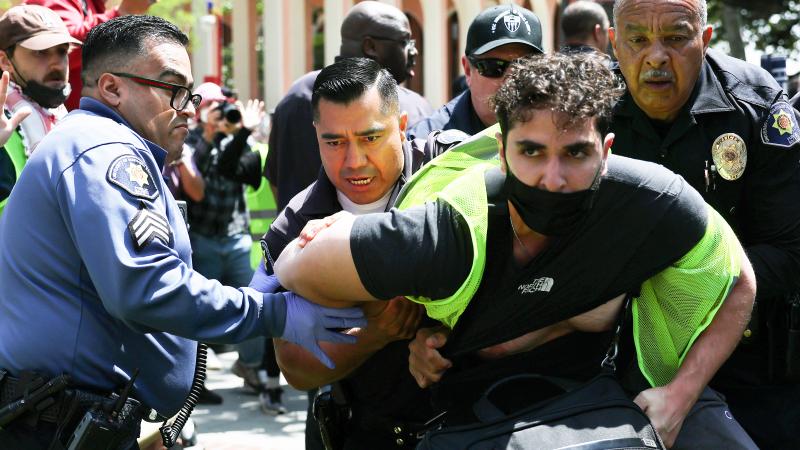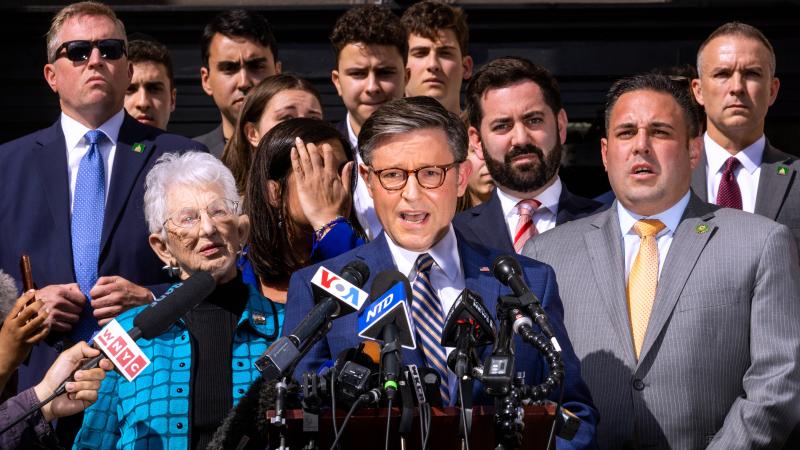Relocate 2022 Olympics, end Chinese trade agreements over Uyghur genocide, say human rights experts
The 151 nations under the Genocide Convention with China should fulfill their obligations to not be complicit in genocide.
To avoid being complicit in the Uyghur genocide, countries should send China a strong message by relocating the 2022 Olympics and rethinking trade agreements with the Communist country, say human rights experts Yonah Diamond and Professor John Packer.
Diamond, an international human rights lawyer at the Raoul Wallenberg Centre for Human Rights, and Packer, Professor of International Conflict Resolution and Director of the Human Rights Research and Education Centre at the University of Ottawa, contributed to a report explaining how the Uyghur genocide meets the international definition.
They discussed the report on the John Solomon Reports podcast.
Diamond explained the purpose and parameters of the report: "So, for the first time, over 50 experts were consulted and offered contributions to a report that is focused on China's state responsibility for breaches of the [1948 Convention on the Prevention and Punishment of the Crime of Genocide] Genocide Convention, and specifically the definition of genocide under Article Two."
"And so the report demonstrates very clearly that China is committing genocide in violation of each prohibited act under the definition of genocide," Diamond said.
"The evidence we examined included firsthand testimonies, Chinese government manuals, planning documents, statements, statistical yearbooks, white papers, reports, satellite imagery, as well as expert analyses of all this data, and the like. And a lot of this stuff is really openly available and official leaked documents."
Diamond defined genocide as stated in the Genocide Convention: "any of the following five acts committed with intent to destroy, in whole or in part, a protected group as such, that includes killing members, causing serious bodily or mental harm, deliberately inflicting on the group conditions of life calculated to bring about their physical destruction, imposing measures intended to prevent birth within the group, and forcibly transferring children of the group to another group."
Diamond explained how the report "lays out very clearly how each of these acts has been met — and systematically, as well as how we've demonstrated the intent to destroy the group's existence, evidence by objective measures like the overall policy, the law, the repeated destructive campaigns, and the selective targeting of leaders of the group."
"And all of these atrocities must be viewed in their totality, which amounts to an intent to destroy the Uyghurs in whole or in substantial part," Diamond continued.
"And so whatever the government's stated objective, as to whether they're fighting terrorism or extremism, they are undoubtedly carrying out a campaign of destroying an entire group, which has already been entirely terrorized and traumatized, and perhaps worse. And I would like to add that this report is conservative in our approach, in the sense of … erring on the side of caution on our facts."
Packer elaborated, saying that because China has a firm grasp on information dissemination, the genocide has likely gotten worse as time passes.
"So, I would like to say that there are manuals that say that border camp officials and those overseeing the camps can maintain strict secrecy, 'which are not to be disseminated or open to the public.' And so, China has a very tight feel on information getting out, as well. So I can only say that one can reasonably presume that the situation has only gotten worse as the policies continue to take place and increase."
In response to being asked about the lack of outcry from the West on the Uyghur genocide, Packer said, "Well, that's a very profound question because it's actually not like this is new, we've actually been aware of different elements of this for quite some time."
"And it's really only stepped up — certainly since 2017, when the forced internment camps really were ramped up — arguably, it was quite evident already in 2014 and really the policy, broadly speaking, of repression of the Uyghurs, and so forth, all the antecedents of what we should have seen, were actually visible."
Packer explained the obligations of the nations under the Genocide Convention.
"The obligation, under the Genocide Convention, we should just underline, is not only not to commit genocide, but the principal obligation is to prevent it. So that the state — China's supposed to be doing the opposite of what it's doing," Packer said.
"It's supposed to be respecting and helping to fulfill full lives and dignity, you know, for all the different peoples in the country and so forth. And it has ostensible policies for that, by the way, ethnic groups."
Packer added that the rest of the states in the Genocide Convention are not fulfilling their obligation of preventing genocide, either.
"But when you look at this, we're not. Now why not? I think it's a combination of a few things. China is big and powerful, as you just mentioned. And that has implications for integrated supply chains, dependency, there's a lot of dependency, nobody wants to be on the kind of wrong side of that. There's a lot of countries that are very vulnerable now, huge loans, the Belt and Road initiative, and so forth."
Packer identified the reason he thinks the Uyghur genocide is not being adequately addressed.
"So, you know, this is a problem, not a new problem. There were some of the problems historically with the Third Reich and so forth, when you have powerful actors," Packer said.
"But the second is, I dare say there's a lack of political leadership, of standing up and actually — which is all that we've done here. We have simply applied the Convention, which has 152 States, Parties, and we simply looked at it and called it out and named it what it is, that's all we've done. And it really begs the question why others are not doing it."
On Just the News a.m. with Sophie Mann, Senior Analyst at Newlines Institute Emily Prey detailed the specific horrors of the genocide on Uyghur women.
"So they're both being detained in these camps, but women are specifically facing forced sterilization, forced abortions, IUD placements, as a way to go coercively prevent births. And they're also victims to mass rapes and sexual torture in the camps. And we don't yet know what the long term results of that will be."
Prey compared the Uyghur genocide to the Yazidi genocide by ISIS.
"But we can look to the Yazidi genocide for some ideas, because those women and girls were also victims of mass rape and sexual torture. And many of them have now expressed an aversion to marriage and to men in general. And so, as a direct result of the horrors inflicted upon them by ISIS soldiers, they will not be having children, they will not be reproducing and continuing on their line."
"And so this is genocide," Prey explained. "It is the intent to destroy a people in part, or in whole, and if women cannot or will not reproduce in a group, then their group cannot survive. And perpetrators of genocide, know this. But fortunately, the Genocide Convention also takes this into account."
Prey continued, "If we take that and apply that to the situation of the Uyghurs, as we did in this report, we can we can look at, for example, the coercive birth prevention programs that in 2019, $37 million were put into these with the intention of reducing birth rates in Xinjiang, and they succeeded — the birth rates dropped by 24%, compared to the 4.2% nationwide."
"And so when we look at genocide, when we look at what's happening to the Uyghurs in China, and the Rohingya in Burma, we must look at what's happening to the women, and the world must stop privileging the act of killing over other non-lethal genocidal acts, because coercive birth prevention measures and mass rape, and separation of children from families — these all constitute genocide as much as mass killing," Prey said.
Packer advised that the 2022 Olympics be relocated.
"So I really think proceeding with the Olympics, even under the Olympic Charter, which says about human rights and so forth, I don't know how you square that. What I think would be a better thing to do would be to relocate the Olympics, and indeed, have the Olympics, but not in China."
Packer explained that "there is an obligation of other states not to be complicit, and they must look at, for example, their trade relations, and they have a legal entitlement to take steps that would even be otherwise unlawful, that would be proportionate and directed at this matter, to take states, such as suspending a trade agreement."
Diamond's recommendation on how the U.S. should respond by increasing "quotas for Uyghur refugees, and continue identifying individuals and entities responsible for the genocide for targeted sanctions, as well as fast-tracking and ensuring strict enforcement of the Uyghur Forced Labor Prevention Act, and efforts to relocate the 2022 Olympics. Those are just a few and, hinging any dealings, really, on closing the camps and ending the atrocity."
Packer also recommended that America should lead the way on pressuring China.
"And I think here, American diplomacy through all the means and levers to really mobilize the international community to stand on this. Now, one important element would be businesses themselves, the whole trade links, we're seeing this also potentially with the Myanmar coup, you know, cutting off the benefits."
"Right now," Packer said, "in Canada and in the U.S. — people walking around with what I would call 'genocide jeans,' you know, meaning, we are wearing cotton-made garments produced from China. We are wearing them on our pants right now. And we have to, all of us, think about their complicity in this genocide."
Diamond added, "there's a recent report that identified at least 82 global brands that are potentially benefiting off of the forced labor, which means one in five cotton products worldwide. So we see the extent and how it enters our markets."
During Secretary of State Antony Blinken's meeting with top Chinese officials in Alaska on March 18, the East Turkistan National Awakening Movement and East Turkistan Government in Exile will protest at the State Department building in Washington, D.C. "to urge the U.S. to act swiftly to end China's genocide of Uyghurs in Occupied East Turkistan."

